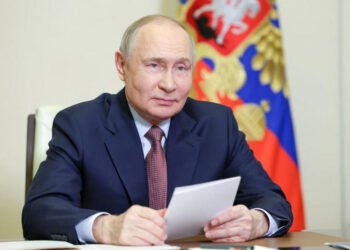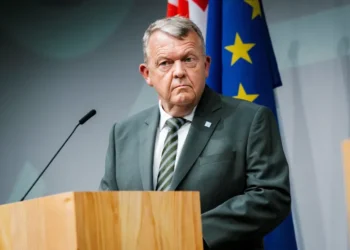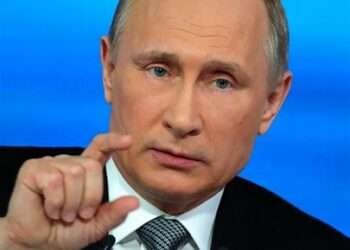As the war continues, Ukraine has suffered not just a lack of ammunition, worsened by delays in the U.S. and the European Union to provide promised aid, but also lack of soldiers.
As such, it is not so surprising that Ukrainian President, Volodymyr Zelenskyy has signed into law a bill that lowers the mobilization age for combat duty in Ukraine from 27 to 25, a significant move to address the urgent need for more troops amid the ongoing war with Russia.
The move expands the number of civilians the army can mobilise into its ranks to fight under martial law, which has been in place since Russia launched its full-scale invasion in February 2022.
It also enhances the military’s readiness to defend the country against aggression. In a time of crisis, such measures may be deemed necessary to ensure the survival and sovereignty of the nation.
The decision to sign the bill came after months of it sitting on the President’s desk following its parliamentary approval in May 2023.
Zelenskyy said late last year that he would sign the bill only if he was given a strong enough argument of the need to do so.
Nonetheless, it reflects the dire circumstances under which Ukraine continues to struggle for its sovereignty and territorial integrity against Russian aggression.
Zelenskyy separately signed a second bill requiring men who were given military waivers on disability grounds to undergo another medical assessment.
A third bill he signed aimed to create an online database of those eligible for military service. Both those bills could potentially help the military draft more fighters.
A string of strict measures set out in an earlier draft of that bill were removed following a public outcry.
While this move may be deemed necessary for national security reasons, it also highlights the profound human cost of the conflict.
Lowering the mobilization age means that younger individuals, potentially with limited military experience or maturity, could be thrust into the frontline of a dangerous and protracted conflict.
Additionally, while expanding the number of troops available for combat duty may provide short-term relief, it does not address the underlying causes of the conflict or offer a sustainable solution to achieving peace and stability in the region.
There is a need for comprehensive diplomatic efforts to resolve the conflict through dialogue and negotiation, rather than relying solely on military escalation.
Therefore, it is important for countries such as China who pose as neutral in the war to do more to bring Russia and Ukraine to the negotiating table.
NATO Foreign Ministers To Discuss Military Aid For Ukraine
At a two-day meeting beginning on Wednesday, April 3, 2024, NATO Foreign Ministers are expected to discuss a proposal by NATO Chief, Jens Stoltenberg for a 100 billion euro ($108bn) five-year fund for Ukraine.
Under the plan, NATO would take over some coordination work from a United States-led coalition known as the Ramstein group.
According to diplomats, the step is designed in part to guard against any cut in US support if Donald Trump returns to the White House.
“Foreign Ministers will discuss the best way to organise NATO’s support for Ukraine, to make it more powerful, predictable and enduring,” a NATO official said.
The proposal is expected to be discussed at the meeting in Brussels on Wednesday and Thursday, with the aim of finalising a package in time for a NATO summit in Washington in July.
“No final decisions are to be taken at the April ministerial meetings, and discussions will continue as we approach the Washington summit in July,” the NATO official added.
READ ALSO: Ghana On The Path To Economic Recovery























